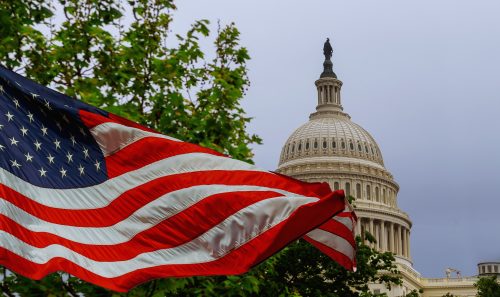Welcome to Our Research Archive
Search and filter by content type, issue area, author, and keyword
- ✕ Clear Filter
- Artificial Intelligence (1)
- Child Tax Credit (1)
- Child Welfare (4)
- Childcare (1)
- cities (1)
- Civil Society (7)
- crime (1)
- criminal justice reform (1)
- Early Childhood (1)
- Economic Opportunity (1)
- Economic Opportunity and Mobility (30)
- Economic Well-Being (16)
- Education (19)
- Employment (1)
- Family (13)
- Family affordability (1)
- family policy (1)
- Family Structure (1)
- Featured (63)
- higher education (7)
- History (2)
- Homelessness (1)
- Housing (11)
- Income (2)
- Marriage (10)
- Minimum Wage (2)
- opportunity (1)
- opportunity and social mobility (1)
- poverty (4)
- Religion (1)
- Remote Work (3)
- Safety Net (1)
- Social Capital (11)
- Society and Culture (7)
- Tax & Transfer Policies (2)
- Technology and Innovation (1)
- Unemployment Insurance (2)
- Urban policy (1)
- Welfare (2)
- Workforce (12)
- Workforce Development (4)
- ✕ Clear Filter
- Angela Rachidi (6)
- Beth Akers (3)
- Brent Orrell (3)
- Bruce D. Meyer (2)
- Daniel A. Cox (3)
- Edward J. Pinto (3)
- Frederick M. Hess (1)
- Howard Husock (3)
- Ian Rowe (1)
- John Bailey (1)
- Joseph Fuller (3)
- Kevin Corinth (5)
- Kyle Pomerleau (1)
- Mark Schneider (1)
- Matt Weidinger (4)
- Max Eden (1)
- Michael R. Strain (4)
- Naomi Schaefer Riley (1)
- Nat Malkus (5)
- Preston Cooper (5)
- R. Glenn Hubbard (1)
- Richard Burkhauser (1)
- Richard V. Burkhauser (1)
- Robert Doar (1)
- Robert Pondiscio (1)
- Ryan Streeter (1)
- Samuel J. Abrams (1)
- Scott Winship (7)
- Stan Veuger (3)
- Timothy P. Carney (1)
- Tobias Peter (5)
- W. Bradford Wilcox (4)
- Yuval Levin (1)


October 23, 2024
Work Requirement Waivers Increased FoodShare Caseloads and Costs in Wisconsin
Employment plays a crucial role in helping families escape poverty and move up the income ladder. The Temporary Assistance for Needy Families program, created through welfare reform in 1996, showed that linking government assistance to work could increase employment and decrease poverty among single-mother families. The Supplemental Nutrition Assistance Program, commonly known as food stamps,…

October 3, 2024
Protectionism is Failing and Wrongheaded: An Evaluation of the Post-2017 Shift toward Trade Wars and Industrial Policy
Abstract The Trump–Pence and Biden–Harris administrations enthusiastically embraced protectionism. Each administration explicitly argued for a break from the bipartisan consensus of recent decades that has been generally supportive of free trade and of allowing markets to shape US industrial and employment composition. But the protectionism of the Trump and Biden administrations has not succeeded and…

October 2, 2024
The effect of taxes and transfers on low-earning workers’ income.
Despite misperceptions that the United States is limping through late-stage capitalism, American workers are more highly compensated than ever before—even the lowest earners. The 20th percentile earner—worse-off than 80 percent of workers—had annual earnings 19 percent higher in 2022 than in 1979, after accounting for inflation and a decline in women choosing to work only…

October 2, 2024
Higher Education: Making Education Beyond High School Work for All
Executive Summary and Introduction: For generations, society has told high school students that college is a great investment. The case is familiar: college graduates typically earn more money than their peers without degrees, and a college education is necessary for the 21st century labor market. For low-income students especially, college has been sold as a…

September 25, 2024
Disconnected: The Growing Class Divide in American Civic Life
Key Points Read the PDF. Executive Summary At one time, American social and civic life was characterized by robust networks of social connections and activities. But in the years following the pandemic, which curtailed social opportunities and community activities, there are few signs of recovery. The American Social Capital Survey reveals that American civic life…

September 23, 2024
Toward a Potential Grand Bargain for the Nation
The views expressed in this report are those of the individual authors who collectively constitute the Grand Bargain Committee, co-chaired by Michael R. Strain and Isabel V. Sawhill. This report was sponsored by the Center for Collaborative Democracy and was prepared independent of influence from the center and from any other outside party or institution. It…

September 10, 2024
America is Still Working
Sometimes it seems like Americans can’t decide whether we work too much or too little. We hear that because of rising inequality and a lack of good jobs, workers must toil too many hours at wages too low to support a family. By other accounts, the machines— if not robot overlords, then at least their…

July 24, 2024
Housing and the American Worker
As the American Worker Project analysis shows, real wages have increased over time. Real wages are nominal wages corrected for changes in the price level, and a natural approach to understanding the way in which housing policy affects real wages is through (housing) prices. But the importance of housing to the economic well-being of the typical American…

July 23, 2024
How the 2017 Tax Law Made Itemized Charitable Giving a Luxury Good
Key Points Read the PDF. The Tax Cuts and Jobs Act (TCJA) of 2017 included some of the most far-reaching changes to the US income tax code in a generation. In addition to reducing statutory tax rates for individuals and corporations, the law adjusted the tax base. Among its most significant changes to the individual…